Veneers or Bonding: Which is Right for Me?
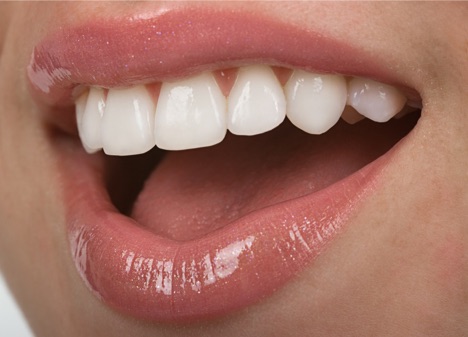
Damaged or misshapen front teeth can cause stress and lack of confidence. Fortunately, most cases can be improved. When it comes to transforming your smile, there are options.
If the change you want requires very little tooth structure removal, your typical options are bonding or veneers. If you want a dramatic shade change, the case becomes more complex and you need to discuss with your dentist what the best treatment would be. Both dental bonding and veneers aim to reach the same goal: good aesthetics and adequate strength. Due to the properties of each material and the method of the treatment there are differences in outcome. We will review the details of each.
The Biggest Dental Care Mistakes
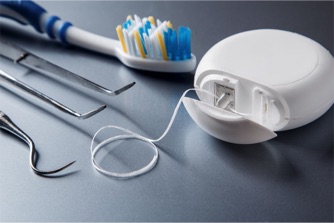
Dental care is not as easy and straight-forward as you may think. People often make big dental care mistakes which can do more harm than good. Avoid these common mistakes to keep your teeth as healthy as possible for life.
Dental Care Tip: 5 Ways To A Beautiful Smile

It is said that a smile is worth a thousand words. It is an excellent way to present positive emotions and can make you and others feel better. Research indicates that we can learn to smile “better” by understanding its dynamics and learning the way we naturally smile.
Because smiling is a natural expression for humans of all cultures, it is weird to think that there are ways we can improve our smile to make it more aesthetically appealing. We can improve it by taking some simple steps. Five common tips that can help you gain a beautiful smile are shared here:
A Natural Smile
The first tip to improve your smile is to always do it naturally. Although there are circumstances where you may have to force a smile to come to your face, a natural smile is always the most beautiful one.
We use a lot of muscles when we smile naturally, which in turn produces endorphins that further improve your mood. Remember endorphins? These are the happiness producing chemicals in your brain.
Another thing that you can do is separate your front teeth from the bottom ones when you smile. According to researchers, this creates a nice natural looking appeal and presents your smile to others as welcoming.
Have the Proper Oral Care Routine
It’s important that you choose the right toothbrush, brush at least twice a day and floss every day in order to keep your teeth healthy, and have a beautiful smile that you can wear with confidence. Your dentist and dental hygienist can give you more tips regarding this but generally you need a tooth brush that works and is efficient. An old scraggly tooth brush that is a year old will not work well. Generally, you should be changing your toothbrush every 3 months. The bristles should be soft or extra soft and often times an electric brush is much more efficient than our own manual labor. Flossing is really important to keep gums looking nice and light pink and tight rather than swollen, red and inflamed.
Show Those Teeth
It is found that showing your teeth when you smile is much more aesthetic than smiling without showing your teeth. This appearance produces a look of happiness and has a positive effect on the others that see your smile. You will find that a smile that displays teeth is treated with more warmth and receives more positive feedback.
Healthy Gums and Teeth
Another way to improve your smile is to ensure your teeth and gums are in optimal health. Cavities and enamel wear can lower the brightness or outright stain your teeth. Decay can lead to discoloration, pain and even tooth loss. See your dentist regularly so that they can may be inspected for cavities and so you can be informed of how best to maintain the health of your teeth. Some stains are harmless and this will be determined by your dentist. If a different or lighter tooth shade is something you want, again discuss this with your dentist and they will likely offer some whitening options. Remember, shade isn’t everything. A healthy cavity free smile is the most beautiful smile.
Practice
Last of all is practice. Research has found out that practicing your smile in front of the mirror improves your posture as well as your smile and allows you to naturally present a better smile when in front of people.
These are the top tips that can get you a beautiful smile in no time at all.
Dental Care For Children: ECC (Early Childhood Caries) Treatment and Prevention

What are Early Childhood Caries?
Early Childhood Caries (ECC) is a major oral health concern in infants and children today. This disease is five times more common in children than asthma, and seven times more common than hay fever. Also known as Baby Bottle tooth decay, ECC occurs when toddler’s teeth come frequently in contact with sugars. Early Childhood Caries is one of the most common oral health problems in children. If left untreated, the caries can demolish the teeth, completely. This happens when the decay grows and becomes large, destroying the nerves and blood vessels inside the teeth, making it weak and lifeless.
Treatment of Early Childhood Caries
For Mild Conditions
Treatment of ECC can greatly vary on the severity of the condition and the child’s age. For the initial stages of ECC, fluoride treatment might be the most suitable option. Fluoride is known to strengthen the enamel of teeth. It reduces the risk of decay by making enamel stronger and can reverse very superficial tooth softening. A fluoride varnish can be applied on the child’s teeth, which helps in re-mineralizing the teeth, and making the enamel stronger and more resistant. Fluoride supplements can be given to older children that can also help.
There are also a few diet changes that can help in treating ECC:
* Limiting the intake of fizzy drinks and soft drinks
* Limiting the intake of citrus juices
* Replacing sweetened drinks with water
* Making sure that infants do not fall asleep with the milk bottle in their mouths
* Taking care of oral hygiene
For Severe Conditions
If the ECC has developed to a severe extent, there is a dire need for immediate and extensive treatment in order to restore the child’s teeth. A dentist might recommend stainless steel crowns which will help fortify the outer structure of the teeth. In some cases, some teeth might be extracted if the teeth are not salvageable or if they are causing infection. Treatments might vary depending on the child’s age, however, severe conditions of ECC are very hard to treat completely, and might cause problems for the child in adulthood.
Prevention of Early Childhood Caries
Prevention is better than these solutions, and always will be. It is easy to prevent children from acquiring ECC by taking a few simple precautions. Avoid feeding children sugary foods and beverages. Substitute fruit juices with water and take care of their oral hygiene. Avoid giving bottles to make toddlers sleep at night. If they must have a bottle to go to sleep, keep diluting the milk with water, slowly, over a few weeks, until the child is drinking only water.
Other precautions include:
* Giving bottles to children only during meals, and not throughout the day
* Cleaning the gums of babies with a soft toothbrush and water
* Teaching and encouraging children to start drinking from a cup instead of a bottle
* Visiting the dentist regularly for frequent checkups
Remember that good oral health is very important for adults and children, alike. And by following a few guidelines, we may be able to create a generation that focuses on dental wellbeing.
If It Doesn’t Hurt, Does It Need A Filling?

In short, yes. If your dentist tells you that you need a filling, then apparently you do. Whether you are in pain or not has no bearing. As humans we use pain as our wake up call, realizing that there is something wrong if it hurts. Yeah, if it hurts, there is probably something wrong. But sometimes the thing that is wrong has been developing and progressing in severity and rears its ugly head only when a certain point is reached. Perhaps this is why society is so slow to implement preventative care and programs to promote mental health. Sufferers of generalized anxiety disorder or bipolar disorder aren’t really in physical pain are they? Ah, let’s ignore it then. Anyways, when you understand the parts of a tooth and how a cavity develops, you will see that a cavity will not necessarily hurt. Many patients comment on how that cavity doesn’t really bother them, or that leaky crown doesn’t hurt. Well, that’s a good thing! No, the dentist is not just trying to rob you of your money. We want to fix the problem before it becomes a bigger and more expensive problem with a poorer prognosis. Remember, small problems are simple, cheap to fix and easy to maintain. Big problems are more complex, more expensive and comes hand in hand with a lifetime of maintenance and retreatments.
A tooth has three layers: the super strong enamel, the softer dentin, and the nerve (I named the layers from outside – in). A cavity is an area of tooth decay which occurs when bacteria in our mouths produce acid which dissolves tooth. If the tooth softening is only in enamel, it won’t hurt. Hey, at this point we can see if we can remineralize the area and reverse the effects of the enamel softening. Cool, no filling required. If the decay is in enamel and has grown to include some of the dentin, it still might not hurt. At this point we can do a simple and small filling. Nice and far away from that sensitive nerve. If the decay continues to grow larger and is getting closer to that nerve, it still probably won’t hurt. At this point you need a medium to large sized filling. We haven’t involved the nerve, which is good but we are close and the nerve doesn’t like that. There is a chance that the tooth may experience some sensitivity to hot or cold. If the decay has grown so large that it is literally just sitting right on top of the nerve, it still might not hurt. Or it may. It is different for everyone. You could experience sharp sensitivity to cold, it could be a little achy, or it could feel perfectly fine. But now you need to remove the decay which is sitting right on top of the nerve. The nerve may become exposed when the decay is removed, allowing bacteria to get into it and this is really irritating to the nerve! If you don’t need a root canal now, you have a good chance of needing one in the future, even if everything feels great right after the filling is placed. It could feel great for years and then suddenly act up. The body is incredibly resilient at times. The tooth could be completely rotten on the inside, the nerve dead, the bone encasing the root “dissolving” due to infection and the person could still not feel pain! This brings me to my point that even if it doesn’t hurt, you still might need a filling, or treatment, whatever that may be. That is up to the assessment of the dentist who has trained for many years, understands decay progression, tooth anatomy and how to maintain optimal oral health. In short, prevention is king. Let’s catch problems when they are really small so they are easy to fix. Better yet, let’s hone in on warning signs and recognize potential problems to prevent them from even happening. This is why regular, frequent dental visits are so important. This is why even if you have never had a complex dental history you could still benefit from regular visits. What we want is for you to succeed in your oral health!
Is An Electric Brush Worth It?
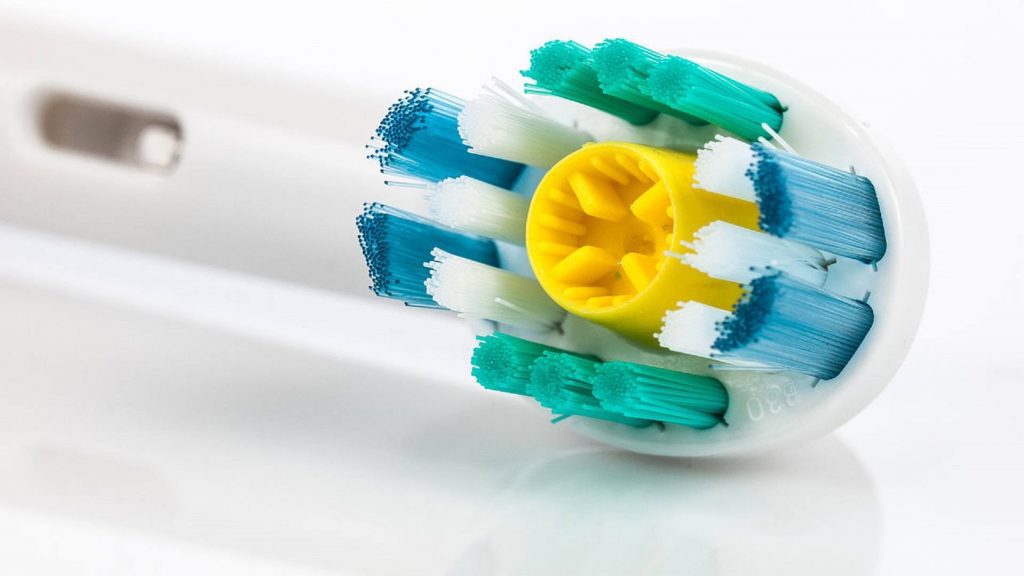
The Debate: Electric vs. Manual Toothbrushes
Choosing What’s Right for You
Yes, unequivocally yes—but let’s dive deeper. If the bulkiness and grip of electric toothbrushes turn you off, and you’re consistent with a manual one, stick to it. Proper technique trumps all. However, don’t let resistance to change keep you from exploring the benefits of electric toothbrushes.
The Ease of Electric Toothbrushes
Electric toothbrushes offer simplicity. Just guide the brush from tooth to tooth; it does the heavy lifting. Ideal for those with arthritis or kids learning to brush, its efficiency can transform your dental care routine.
Why Give Electric Toothbrushes a Chance?
For Every User
Everyone can benefit. You’ll notice your teeth feel cleaner, almost as if you’ve just left the dentist’s office every day.
Choosing the Right Brush
Options abound. For sensitive gums or teeth, a Sonicare might be your best bet. Otherwise, an affordable Oral B could suffice. Always opt for ultra-soft bristles and remember to replace them regularly.
Gentle Care for Lasting Health
Your oral health is precious. Electric toothbrushes can help maintain it without causing damage. They’re not just tools but investments in your well-being.
Visiting the Dentist: Helping Children Ease Their Worries
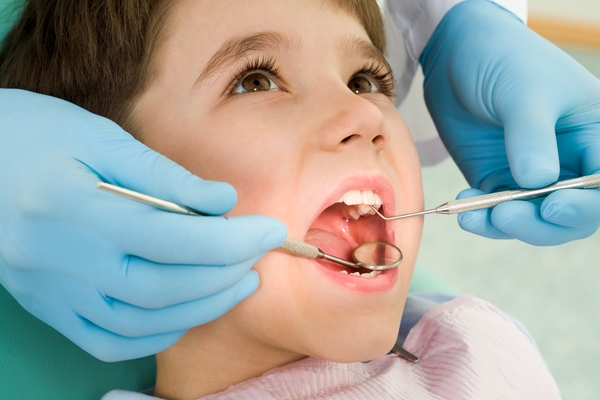
Dental phobia is common in both the young and the old. Often times this fear can lead to a ton of problems in the future due to avoidance and procrastination which eventually turns a small problem into a larger one. It really helps having a positive first dental experience. Our first experience will affect our level anxiety during those dental appointment for years to come. Here are some tips on how to prepare your child for their dental appointment to set them up for success:
Don’t transfer your fear of the dentist to the child
This is harder than it sounds. But yes, it is common for fearful parents to transfer their fear on to their children. Kids are smart, they pick up on our nervous behaviors and emotions. Don’t fuss over them or dwell on the idea of the dental appointment. Be nonchalant and matter of fact when talking to your child about their dental appointment.
Don’t scare your child
Believe it or not, this is common. We often have parents who tell their kids they are going to get a big needle. This does not help us, the dental team. Dealing with a child on the look-out for the big needle is difficult. When prepping your child for an appointment be totally emotionless and matter of fact and avoid scary details. You still want to be realistic and give them an idea of what to expect but leave out the details about the needle.
Choose a Dentist That Likes Seeing Children
Some dentists prefer not to see children or are used to dealing with a mainly adult clientele. Dealing with a dentist who sees a lot of kids may mean they have more experience and has acquired some good strategies when dealing with children.
Let Them Bring Their Favorite Friend
When the child is feeling stressed and anxious, holding his favorite stuffed toy may well provide a certain level of comfort; provided it does not hinder the dentist’s work.
Read books about seeing the dentist and Practice opening wide
Before seeing the dentist, it is a good idea to read stories that involve a trip to the dentist with them. Role playing also helps. Practice having your child open their mouth while you take a look inside. Using a q-tip to count their teeth is good to prepare for the first appointment. Let them also use the q-tip to count your teeth so you can show them how fun and relaxing it is!
Stay in the waiting room during treatment
After your child has had their first few introductory dental appointments and they have graduated to having their teeth polished or if they need treatment, please stay in the waiting room during the appointment. Children often act up when their parents are in the room and this makes treatment more difficult. Some parents transfer their nervousness onto their child during the appointment. It is amazing to see the improvement in cooperation and attitude in the young patient once the parent leaves the room.
5 Tips for a Healthy TMJ

The temporomandibular joint (TMJ) must be taken care of, we use it every day. It is the joint that allows our lower jaw to move. Ideally, this is painless and moves with ease! This is not the case for some people. If you have problems with your TMJ, it is best to consult with your dentist. Sometimes a nightguard helps but at times treatment with a physiotherapist or TMJ specialist is required. A little self-care also goes a long way.
Here are 5 tips to keep a healthy TMJ:
1) Avoid hard foods
Quit that chronic gum chewing! Frequently eating tough meats and chewy gummies or gum is stressful for the joint. Soft foods are easiest for the joint.
2) Lubricate your TMJ regularly
Every hour or so, touch your tongue on the roof of your mouth and move your jaw slightly up and down, left and right.
3) Practice proper resting position for your jaw (which will avoid clenching)
Rest your tongue on the roof of your mouth, keep lips closed. The tip of your tongue should be touching behind your front teeth. Your top teeth should not touch your bottom teeth, there should be a small space between top teeth and bottom teeth.
4) Massage your masseter and temporalis
The masseter is your chewing muscle in your cheeks and the temporalis muscle is close to your temple, the one we frequently rub when we have a headache or a stressful day.
5) Be mindful of your neck and back position (i.e. Your posture)
Good posture will reap you great benefits including a healthy TMJ.
5 Signs You Need To See A Dentist

Regular Dental Visits: Your First Line of Defense
Don’t Skip the Dentist
Thinking it’s unnecessary to have a regular dentist might seem logical until you realize the foundation of dental health is prevention and maintenance. Waiting for pain or discomfort before visiting a dentist is like waiting for your car to break down before servicing it. Regular check-ups and a trusted dental team are crucial for maintaining oral health. Despite our best efforts, cavities can still occur due to genetics, tooth anatomy, or difficult-to-clean areas. Catching these issues early, when they’re small and painless, saves time and money.
The Misconception About Crowned Teeth
Crowns and Bridges Aren’t Invincible
A common myth is that crowns or bridges render your teeth “fake” and immune to cavities. This isn’t true. The natural tooth structure remains beneath the crown or bridge, still vulnerable to decay and periodontal disease. Care for these teeth as you would your natural teeth—brush, floss, and don’t neglect regular dental visits to prevent problems before they start.
Dealing with Bad Breath
It’s More Than Just Unpleasant
Persistent bad breath often points to underlying issues like bacteria buildup, plaque, or periodontal disease. It’s not just the surface plaque that smells; deeper problems could be at play. Regular dental cleanings and reevaluating your oral hygiene routine can combat bad breath. Neglecting this can lead to more severe issues such as bone loss or tooth decay.
Aches and Pains in the Mouth
Don’t Ignore Ongoing Discomfort
Ongoing aches in your mouth, gums, or jaw signal something’s wrong. Nighttime teeth grinding, large cavities, or something as simple as a popcorn husk stuck under your gums can cause significant discomfort. Visiting a dentist promptly can prevent the situation from worsening.
Sharp Pain Triggers
Address Pain Early
Experiencing sharp pain from specific actions is a clear sign of dental issues, such as fractures or gum recession. Early dental intervention can prevent these problems from escalating. Delaying treatment only leads to more complex issues.
Major Health Changes and Dental Health
Your Overall Health Affects Your Mouth
Major health changes, like pregnancy or starting new medications, can significantly impact dental health. Conditions like uncontrolled diabetes or Sjogren’s Syndrome necessitate extra dental care. Discuss any health changes with your dentist to tailor your dental care routine accordingly.
Blood Pressure Medication and Oral Health
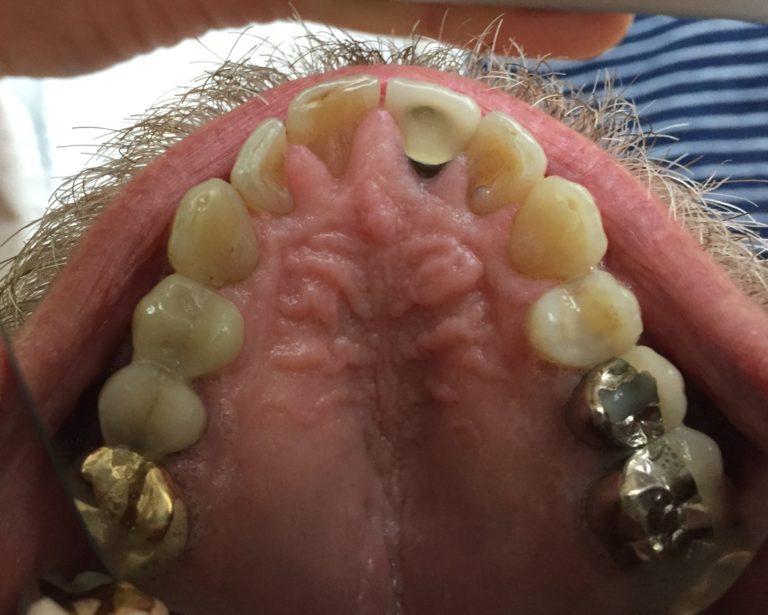
Let’s explore a common issue some patients face: gum overgrowth. This often happens to individuals taking a specific type of blood pressure medication known as calcium channel blockers. Surprisingly, these medicines, while helpful for controlling blood pressure, can lead to an increase in gum size. This condition doesn’t always hurt but requires careful attention to oral hygiene and regular dental visits to manage effectively.
Gum overgrowth means the gums can expand and sometimes cover parts of the teeth. This occurs because the medication affects the way gum tissues react, making them grow more than usual. It’s important for anyone experiencing this to maintain excellent oral cleanliness and have their teeth checked and cleaned by a dentist more frequently.
Moreover, it’s crucial to keep an eye on any cavities or dental work that might not be in perfect shape. The expanded gum tissue has a tendency to fill in gaps around teeth and dental restorations, which could lead to further dental issues. In some instances, if the overgrowth is significant, a dentist might suggest minor surgery to remove the excess gum tissue or discuss alternative treatments with your doctor that might not affect your gums as much.
For example, John (name changed for privacy) noticed his gums seemed to be creeping over his front teeth, a space where he naturally had gaps. This change didn’t cause him pain, but it was noticeable. After discussing it with his dentist, John learned it was a side effect of his new blood pressure medication. Together, they developed a plan that included more frequent dental cleanings and a consultation with his doctor to evaluate his medication options.
Maintaining a dialogue with your dental care provider is essential if you’re on medications that might impact your oral health. Regular check-ups allow for early detection and management of such side effects, ensuring your smile stays healthy and bright.

